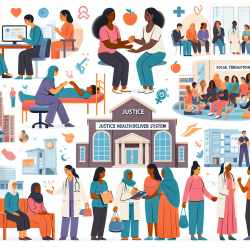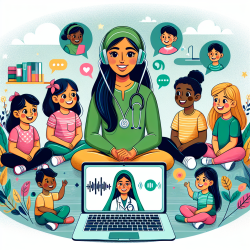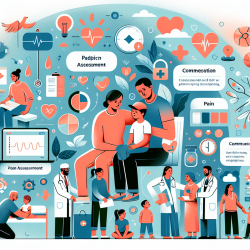Introduction
In the ever-evolving landscape of healthcare, pediatricians are increasingly finding themselves at the forefront of genetic counseling. The research article "Communicating Genetic Information: A Difficult Challenge for Future Pediatricians" underscores the pressing need for pediatricians to enhance their communication skills to effectively convey complex genetic information to patients and their families. This blog explores key findings from the research and provides actionable insights for practitioners aiming to improve their communication skills in this critical area.
Understanding the Challenges
The research identifies several inherent difficulties in communicating genetic information, including the complexity of the subject matter and the varied comprehension levels of patients. Pediatricians often face challenges in simplifying complex genetic concepts and making them understandable for families. Additionally, cultural, educational, and language differences can further complicate the communication process.
Essential Skills for Effective Communication
To address these challenges, the research highlights four essential skills that pediatricians should develop:
- Discriminating: Identifying the complexity and nature of the information to be communicated is crucial. Pediatricians must discern between simple and complex information to tailor their communication approach accordingly.
- Understanding: A deep understanding of genetic information is necessary for pediatricians to convey it accurately and effectively. This includes staying updated with the latest developments in genetics.
- Simplifying: Complex genetic information must be distilled into simpler concepts that patients and families can easily comprehend. This involves breaking down technical jargon into layman's terms.
- Explaining: Clear and concise explanations are vital. Pediatricians should use visual aids and other tools to enhance understanding and retention of information.
Improving Training Programs
The research emphasizes the need for changes in residency training programs to better prepare pediatricians for their role as genetic counselors. Incorporating comprehensive genetics education and communication skills training into the curriculum is essential. This includes hands-on training and exposure to real-world scenarios where pediatricians can practice and refine their skills.
Legal and Ethical Considerations
Effective communication of genetic information is not only a professional obligation but also a legal one. Pediatricians must ensure that patients and families are fully informed to make autonomous healthcare decisions. This involves obtaining informed consent and addressing any potential legal implications associated with genetic counseling.
Conclusion
As genetic information continues to play a pivotal role in healthcare, pediatricians must rise to the challenge of effectively communicating this complex information. By developing the essential skills outlined in the research and advocating for improved training programs, pediatricians can enhance patient outcomes and fulfill their role as trusted genetic counselors.
To read the original research paper, please follow this link: Communicating genetic information: a difficult challenge for future pediatricians.










